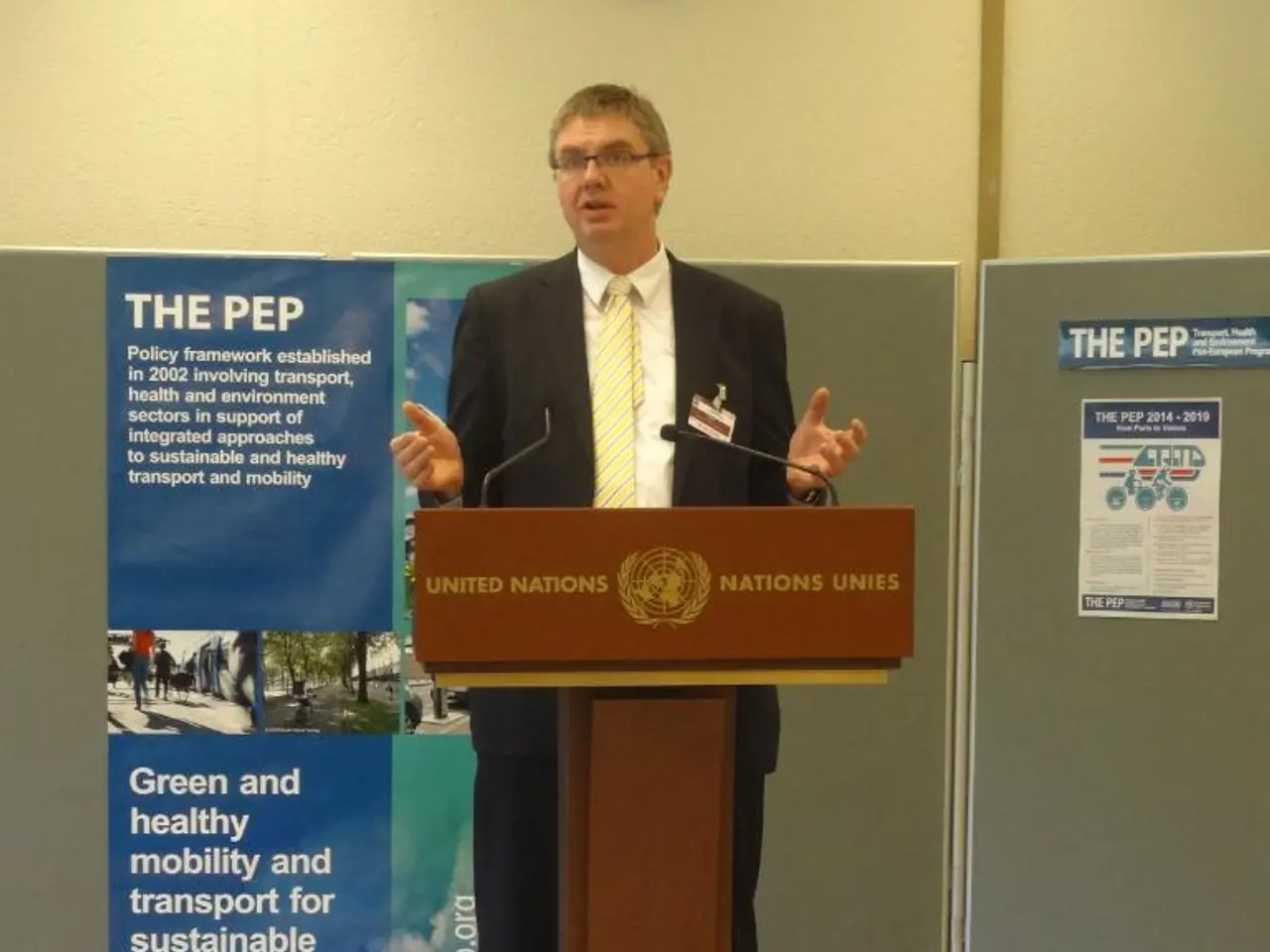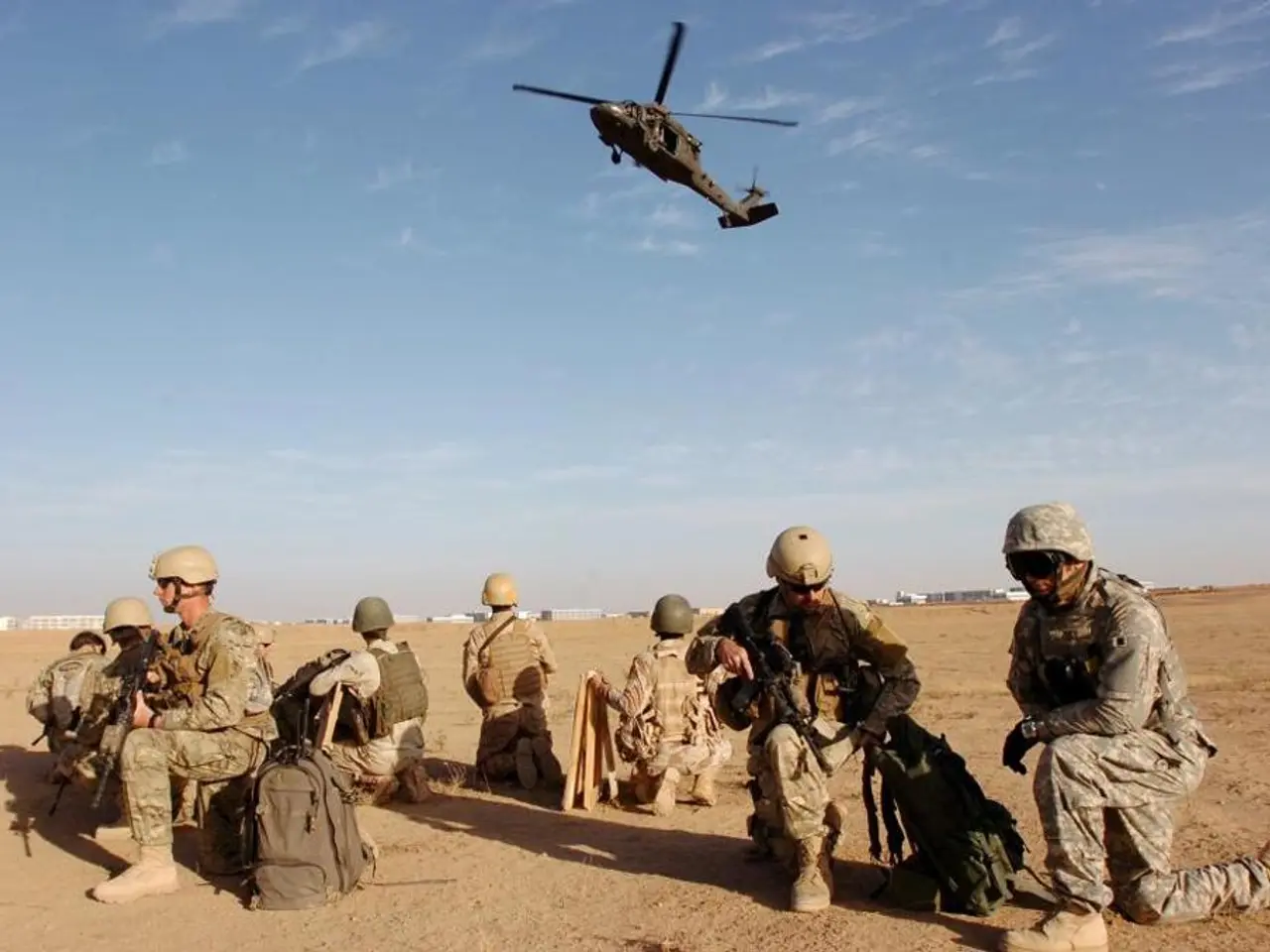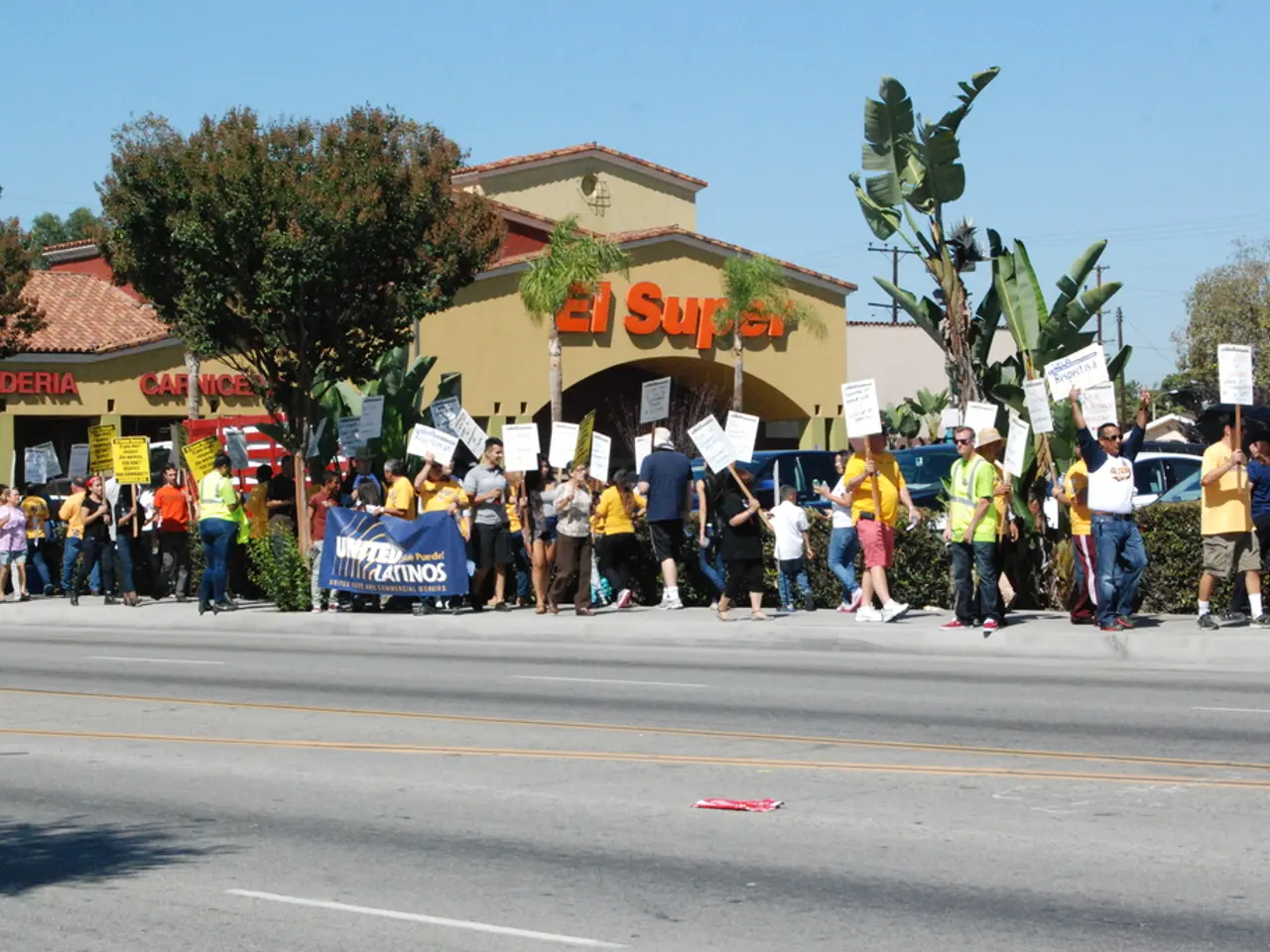Iran's top leader emerges in public for the first time following the initiation of the Iran-Israel conflict
In the midst of ongoing discussions regarding Iran's nuclear program and the Iran-Israel conflict, the current status of negotiations between Iran and the United States remains uncertain and fraught with tension.
The negotiations, which began in April 2025 with the aim of reaching a nuclear peace agreement within 60 days, have been marked by significant disagreements, particularly concerning Iran's stockpile of highly enriched uranium and security guarantees. The recent conflict between Israel and Iran, which included Israeli strikes on Iranian nuclear sites and US airstrikes on Iran, has further complicated the negotiation climate.
Iranian officials have reiterated hardline "red lines" about their nuclear program ahead of any renewed talks, signaling a more entrenched stance. Due to the recent strikes and ongoing regional tensions, Iran is increasingly skeptical about the US and Israel’s intentions. This has hardened Iran's resolve to possibly pursue a nuclear weapon for deterrence, perceiving it as the best protection for the regime amid growing isolation and weakened regional proxies.
The Trump administration has shown increasing support for Israel’s military objectives and has not ruled out regime change in Iran, further complicating the negotiation climate. The recent Israel-Iran conflict has made a genuine, trust-based agreement much less likely in the near term. Iran is likely to approach talks more guardedly, potentially as a tactic to buy time while it rebuilds its nuclear capabilities.
Meanwhile, Iranian Supreme Leader Ayatollah Ali Khamenei made his first public appearance on Saturday since the conflict between Israel and Iran began. Khamenei attended a mourning ceremony on the eve of Ashoura in Tehran, following a 12-day war between Israel and Iran. Prior to his public appearance, Khamenei had reportedly spent the war in a bunker, and his absence during the war suggested heavy security due to threats on his life.
In a public statement on June 26, Khamenei stated that Tehran had delivered a "slap to America's face" by striking a US air base in Qatar and warned against further attacks by the US or Israel. Khamenei's statement came in response to the US's involvement in the Israel-Iran conflict, with President Donald Trump bombing three nuclear sites in Iran. Trump has since stated that the US knew where Khamenei was, but had no plans to kill him "at least for now."
In other developments, Iran resumed international flights after a 20-day suspension due to the conflict with Israel. Images of Khamenei waving to a chanting crowd were broadcasted by Iranian state television, and Iran subsequently denied the UN nuclear watchdog access to its nuclear facilities.
As the diplomatic path to resolving the nuclear issue grows more fraught, it remains unclear how badly damaged the nuclear sites were and whether Tehran has plans to continue negotiations with the US over its nuclear program. Trump and Putin discussed the Ukraine war and Iran in their sixth known phone call, according to the Kremlin, adding another layer of complexity to the already intricate geopolitical landscape.
In light of the ongoing discussions about Iran's nuclear program and the ongoing Iran-Israel conflict, the intricacies of politics and general news are deeply intertwined, as evidenced by the recent strikes on Iranian nuclear sites by Israel and the US. Iran's stance on its nuclear program, marked by hardline "red lines," is now shaped by increased skepticism toward the US and Israel's intentions due to these events, potentially leading to more caution in future negotiations or even a pursuit of nuclear capabilities for deterrence.





